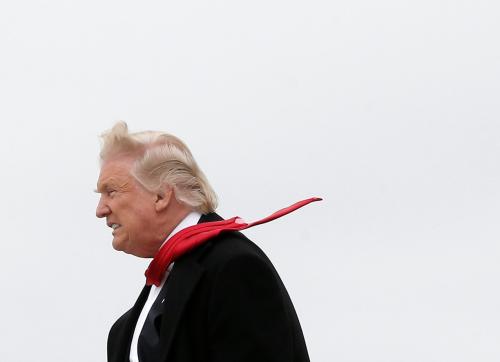Governor Romney has promised he would name China as a “currency manipulator” on “Day 1.” He evidently assumes that the Chinese economy needs the U.S. more than the other way round, and that China will accommodate to his pressure.
But what if he’s wrong? Bill Clinton had the same assumption when he threatened to take away China’s MFN status if it did not improve human rights, in 1993, a time when China’s economy was much smaller than it is today. Chinese leaders believed, in contrast, that the United States needed China more, and, what’s more, their opposition to economic sanctions was fundamental and long-standing. So in the end, it was Clinton who backed down.
In the worst case, a Romney decision to go to the brink with Beijing on the value of its currency would result in a mutually damaging trade war that slowed economic growth and increased unemployment in both countries and caused inflation and higher interest rates in the United States. (For details, see Stephen Roach, “How Romney could go wrong from day one,” Financial Times, August 28, 2012).
But the worst is unlikely to happen. First, Romney has already hedged his threat. In the first debate he promised to “crack down on China if and when they cheat.” And the fact is that China’s currency, the Renminbi, has been gradually appreciating.
Second, even if Romney decides to go ahead and have his Treasury Secretary designate China as a currency manipulator, all that current law requires is that China and the United States have “negotiations,” and China will claim that the current strategic and economic dialogue already fulfills that requirement.
Third, should China refuse to accommodate to U.S. demands, which is likely, the president does not have the authority under current law to impose the countervailing duties that Romney has promised to impose. So he would have to go to Congress to get the authority. But that is easier said than done. The business community would likely voice strong opposition to sanctions, because they would threaten its substantial interests in China. Japan, Korea, Taiwan, and other countries whose companies use China as the manufacturing and assembly platform for products that they ship to America with labels “made in China” would lobby hard against retaliatory tariffs.
So the policy and political logic will likely lead a President Romney to accept the advice of his more moderate foreign policy and economic advisers and abandon his campaign pledge. He will lose some credibility by doing so, but it won’t be the first time that a candidate has walked away from a campaign pledge. And he will have laid down a marker with the Chinese that may make it easier to address other important issues in the economic relationship.
The Brookings Institution is committed to quality, independence, and impact.
We are supported by a diverse array of funders. In line with our values and policies, each Brookings publication represents the sole views of its author(s).



Commentary
U.S.-China Relations Under a Romney Presidency
October 22, 2012